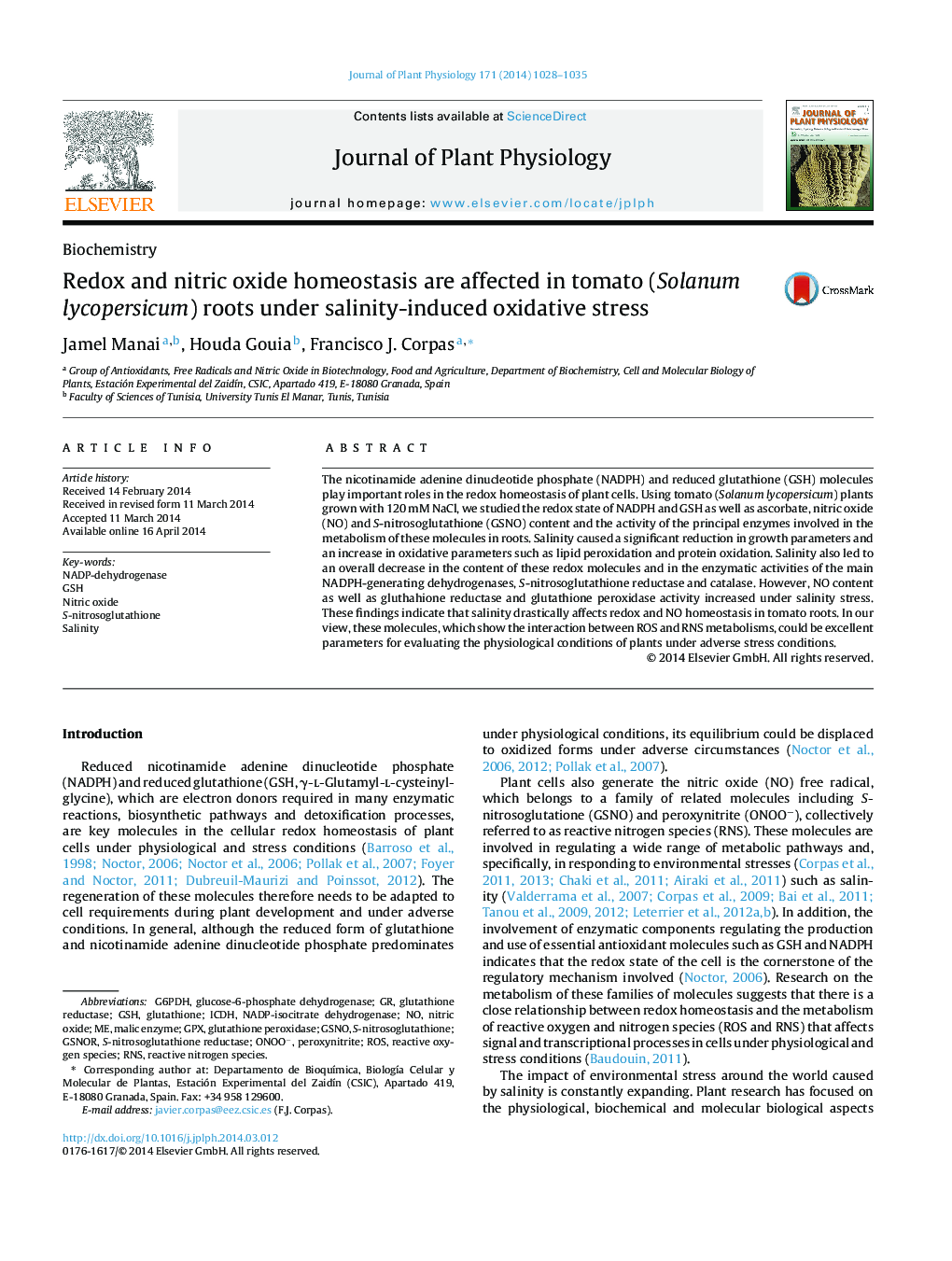| Article ID | Journal | Published Year | Pages | File Type |
|---|---|---|---|---|
| 2055629 | Journal of Plant Physiology | 2014 | 8 Pages |
The nicotinamide adenine dinucleotide phosphate (NADPH) and reduced glutathione (GSH) molecules play important roles in the redox homeostasis of plant cells. Using tomato (Solanum lycopersicum) plants grown with 120 mM NaCl, we studied the redox state of NADPH and GSH as well as ascorbate, nitric oxide (NO) and S-nitrosoglutathione (GSNO) content and the activity of the principal enzymes involved in the metabolism of these molecules in roots. Salinity caused a significant reduction in growth parameters and an increase in oxidative parameters such as lipid peroxidation and protein oxidation. Salinity also led to an overall decrease in the content of these redox molecules and in the enzymatic activities of the main NADPH-generating dehydrogenases, S-nitrosoglutathione reductase and catalase. However, NO content as well as gluthahione reductase and glutathione peroxidase activity increased under salinity stress. These findings indicate that salinity drastically affects redox and NO homeostasis in tomato roots. In our view, these molecules, which show the interaction between ROS and RNS metabolisms, could be excellent parameters for evaluating the physiological conditions of plants under adverse stress conditions.
